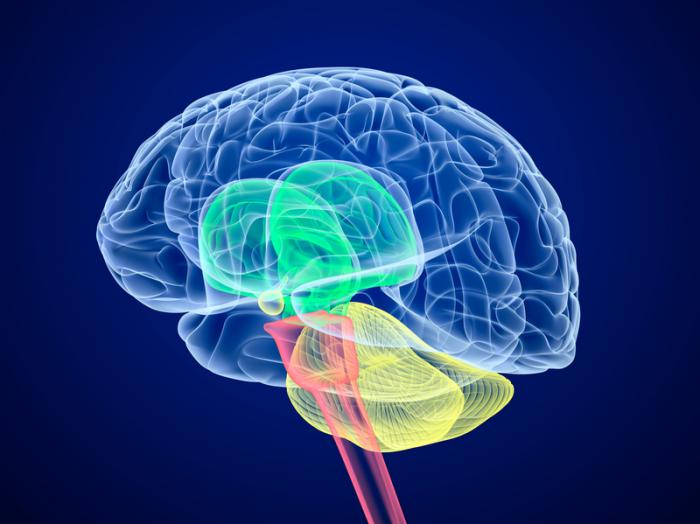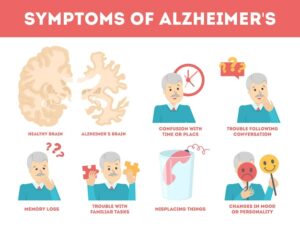Memory is a tricky thing! How many times have you walked into a room and forgotten what you intended to do there? Misplacing your keys, reading texts but passing over to respond, and whatnot. Stress and aging are possibly easy to blame, but it becomes a concern when forgetfulness takes over your day-to-day activities, such as having conversations, getting dressed or paying bills.
There is a difference between temporary forgetfulness and experiencing memory problems, especially in adults. And it is obvious to question such signs, whether they are symptoms of Alzheimer’s or not.
Alzheimer’s disease is a common type of dementia that affects a person’s thinking, memory, and behavior. It’s a neurodegenerative disease, caused by the death of brain cells. In the progression of Alzheimer’s, the size of the brain begins to shrink and the connections between nerve cells keep getting lesser and lesser.
There is no cure for this disorder but knowing the early signs and symptoms assists in getting the right medical help.
What Causes Alzheimer’s?
Contrary to popular belief, Alzheimer’s isn’t a normal part of aging. Certainly, with increasing age the risk increases but it can’t be the direct cause of Alzheimer’s or other dementias. The exact cause isn’t fully understood, but the risk factors that can make an individual prone to the disease can be:
- Age-related changes in the brain, like inflammation, shrinking, damaged blood vessels, and breakdown of energy within cells may harm neurons and affect other brain cells.
- Family history or changes in genes passed down by a family member could be a reason. In rare cases, the onset of symptoms can be seen between the 30s to mid-60s. In other cases, the late onset of signs is witnessed in the mid-60s.
- Down Syndrome is a genetic condition that increases the risk of developing Alzheimer’s in patients as they age. Symptoms may begin to show in their mid-40s.
- Head Injuries may carry a future risk of developing Alzheimer’s or other dementia.
- Stress, depression, sedentary lifestyle, or isolation are some of the lifestyle factors that may play a role in exposure to chronic health conditions like stroke, high blood pressure, heart disease, diabetes, and obesity. Also, heavy alcohol consumption, smoking, and poor sleep patterns increase the complications associated with the disease.
Symptoms
In Alzheimer’s, changes in the brain begin before clinical signs and symptoms are noticeable. The severity and occurrence of symptoms happen differently for each individual, as Alzheimer’s affects everyone differently. However, the disease is more than simple lapses in memory. Other warning signs of Alzheimer’s are:
-
Challenges in planning, solving, and understanding problems.
(Working with calculations, trouble following a familiar recipe or keeping track of monthly bills, etc.)
-
Problem with language.
(Often forgetting simple/substitute words, making writing or speech hard to understand.)
-
Confusion with time or place.
(Can lose track of dates, seasons, places or any details of the recent past. Eg. like wandering or forgetting how to get back home, etc.)
-
Misplacing things.
(Different from temporary forgetfulness. A person might put things in unusual places like keys in the fridge, etc.)
-
Changes in mood and behavior.
(Getting sad, moody, angry or discouraged from time to time, with no apparent reason. Rapid mood swings are witnessed in a person having Alzheimer’s)
-
Withdrawal from work or social activities.
(Refusing from taking initiative in hobbies, or attending social activities or other engagements more often than usual.)
-
Repeating questions.
(Relating to a lapse of memory loss, asking questions over and over is seen. Relying on memory aids or family members is more comforting than trusting their own ability.)
-
Poor or decreased judgment.
(Experience changes in obvious judgments or decision-making, like inability to make monetary budgets, dressing up according to the weather, etc.)
In moderate or severe stages of Alzheimer’s, patients start to demonstrate challenging symptoms requiring intense care and attention. Some of the warning signs could be:
- Difficulty in recognizing family members, friends, etc.
- Hallucinations, paranoia, or delusions.
- Inappropriate behavior, outbursts of anger, non-stop crying, etc.
- Depression, anxiety, or restlessness.
- Some physical health conditions like loss of bladder/bowel control, difficulty swallowing, skin infections, seizures, weight loss, increased sleep and others have been noticed.
In Alzheimer’s, it is always the sooner, the better scenario. Physical examination and some brain imaging tests like CT Scan, MRI, and Amyloid PET help in ruling out the probability of having Alzheimer’s or other health conditions.
It is natural that one might feel uncomfortable discussing these changes with others. Noticing one or more signs in your loved ones can be difficult, with no idea of what to do next! As a first step, have an open discussion with them and share the concerns with a doctor to know the next action of evaluation and treatment.




Recent Comments